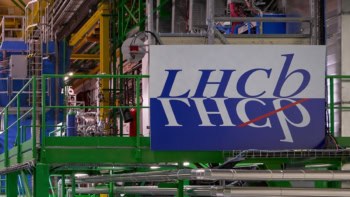
Big-science projects and Gaudi’s Barcelona masterwork the Sagrada Familia have more in common than you may think. That’s because multinational science projects and spectacular cathedrals both take longer than an average career to complete, which is why a process for inter-generational knowledge transfer is essential.
So said Leonardo Biagioni, deputy chief financial officer at F4E, the outfit that manages Europe’s contribution to the ITER experimental fusion reactor. “Apprentices learn from the masters before becoming the masters themselves,” he told delegates at the Big Science Business Forum (BSBF2022) in Granada, Spain.
Last week’s event brought together leaders from industry and academia, but there were plenty of early-career scientists and engineers too. They heard about the launch of XCITECH, a new in-person school designed to kickstart careers in big science. It will be held annually in Granada, the city hosting IFMIF-DONES, a research facility that’s being built to investigate materials for fusion power.
The plan is for scientists and engineers from IFMIF-DONES to deliver lectures at the school, drawing on previous experience at other big-science facilities.
“Our idea is to change the focus of the course each year depending on the feedback we receive from industry and what we feel is most important to teach our students,” says Blanca Biel Ruiz, an XCITECH co-ordinator and quantum simulation researcher at the University of Granada, who features on this week’s Physics World podcast.
Another theme at BSBF2022 was the need to strengthen ties between the private sector and academia. Maurizio Vretenar, a project leader at CERN, called for research institutes to view industry as a collaborator rather than a supplier. He questioned the prevailing wisdom that it is cheaper to develop solutions in house, because academic budgeting rarely takes full account of people time.
The 10 most important future big-science facilities in physics
In the same session, Miranda van den Berg, innovation network manager at VDL, said that industrial engineers love being involved in big-science projects. She said that holding contracts with cutting-edge science facilities can help commercial companies to attract the best talent. One project discussed in Granada is the Einstein Telescope, a third-generation gravitational wave observatory that will require exceptional vacuums, powerful lasers and near-perfect mirrors.
During the closing session, panellists looked ahead to BSBF2024 (location tbc). They suggested key themes should include tech solutions for sustainable procurement, accelerating technology transfer, and routes into the big-science market for small- and medium-sized enterprises.




